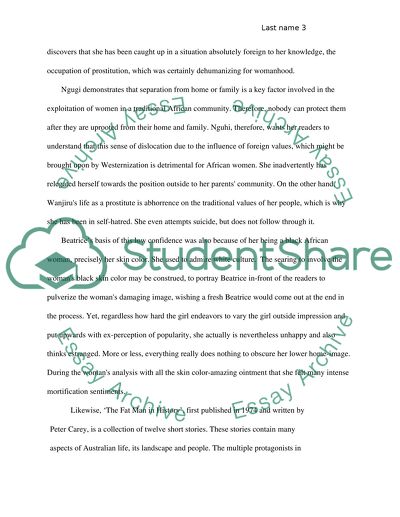Cite this document
(“Minutes of Glory by Ngugi Wa Thiong'o and The Fat Man In History by Essay”, n.d.)
Retrieved from https://studentshare.org/literature/1470911-minutes-of-glory-by-ngugi-wa-thiongo-and-the-fat-man-in-history-by-peter-carey
Retrieved from https://studentshare.org/literature/1470911-minutes-of-glory-by-ngugi-wa-thiongo-and-the-fat-man-in-history-by-peter-carey
(Minutes of Glory by Ngugi Wa Thiong'O and The Fat Man In History by Essay)
https://studentshare.org/literature/1470911-minutes-of-glory-by-ngugi-wa-thiongo-and-the-fat-man-in-history-by-peter-carey.
https://studentshare.org/literature/1470911-minutes-of-glory-by-ngugi-wa-thiongo-and-the-fat-man-in-history-by-peter-carey.
“Minutes of Glory by Ngugi Wa Thiong'O and The Fat Man In History by Essay”, n.d. https://studentshare.org/literature/1470911-minutes-of-glory-by-ngugi-wa-thiongo-and-the-fat-man-in-history-by-peter-carey.


